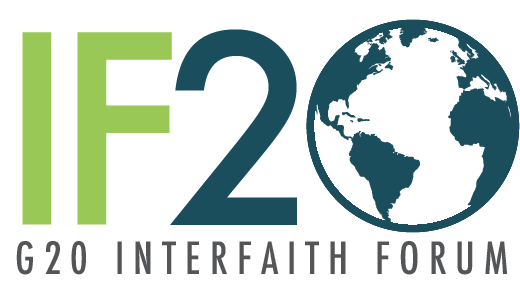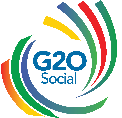
Indigenous and African-descent Religious Leaders meet in Belém, Brazil to discuss issues with IF20, part of G20 Social

G20 Interfaith Forum
The focus of the discussions was on the G20 Brazil Presidency’s priorities, including G20 Social, and their relevance to these distinctive communities.
BELéM, PARá, BRAZIL, June 17, 2024 /EINPresswire.com/ -- While ancestral cultures of indigenous and African-descent communities make valuable and well recognized contributions to society, these communities’ essential rights have been and continue to be violated. The post-colonial era has failed to put an end to the discrimination and exploitation they suffer. To address these issues, the G20 Interfaith Forum (IF20) held a two-day conference in Belém, Brazil co-sponsored by International Religious Liberty Institute, Brazilian Center for Studies in Law and Religion, Federal University of Uberlandia and with institutional support from Federal University of Pará and State University of Pará. The focus of the discussions was on the G20 Brazil Presidency’s priorities, including G20 Social, and their relevance to these distinctive communities.
W. Cole Durham, Jr., president of G20 Interfaith Forum, stated: “The IF20 Belém conference has provided remarkable opportunities to collaborate with indigenous leaders and representatives of religions of African descent. This will genuinely impact Brazil and beyond.” The title of the conference highlighted this conference theme: “Indigenous Peoples, communities of African Descent, and Group Rights: Perspectives on Religious Freedom and Brazilian Priorities During Brazil’s G20 Year.”
Brazilian federal and local officials attended the meetings, including Irenilda Aparecida Maria Francisco (Iya Gilda), General Coordinator for Religious Freedom at the Ministry of Human Rights and Citizenship; Mametu Nanguetu, Nanguetu Institute, Civil Society Representative from Belém (Pará); and Isabela Dario, President, Religious Freedom Commission of the Bar Association of Minas Gerais. International experts also attended, such as David Little, Harvard Divinity School, Emeritus; David Saperstien, Former Ambassador-At-Large for Freedom of Religion, USA; and Alexis Artaud-de-La-Ferriere, Royal Holloway, University of London (UK).
Brazil has strong commitments to and a positive record of protecting religious and minority rights. Further progress with respect to challenges involving indigenous peoples and vulnerable religious groups will help advance the country’s priorities. Specific issues addressed during the conference included mapping the situation of religious freedom in Brazil and its relevance to other human rights; protecting religious sites and the heritage of traditional peoples and communities; education, development, and cross-cultural understanding; and balancing group and individual rights.
The major deliverable of the conference is a document discussed and developed during the conference: “Guidelines for Assessing the Intersection of the Rights of Indigenous Peoples, Group Rights, and Freedom of Religion and Belief.” This document proposes solutions with respect to the protection of the traditional and spiritual rights and values of indigenous groups, communities of African descent, and other affected individuals.
In a statement about the guidelines, Nicholas Miller, President, International Religious Liberty Institute at Washington Adventist University, commented: “This set of guidelines on the religious and group rights of traditional and indigenous minorities has the potential to fill a gap in this important area in existing international documents.” These guidelines should be used to preserve and promote both indigenous rights and the freedom of religion and belief for all religious groups, which are fundamental rights for all people.
IF20 will have meetings in Manaus, Brazil on June 17-21, focusing on climate issues, and in Brasilia, Brazil on August 18-22, continuing the focus on the Brazil G20 priorities, as well as the UN Sustainable Development Goals (SDGs).
About the G20 Process
The Group of Twenty, or G20, is the premier forum for international economic cooperation,
bringing together the leaders of Earth’s most prosperous economies. Collectively, G20
members represent around 80 percent of the world’s economic output, two-thirds of the
global population and three-quarters of international trade. Throughout the year,
representatives from G20 countries gather to discuss financial and socioeconomic issues as
well as broader humanitarian issues targeted by the UN’s Sustainable Development Goals.
About the G20 Interfaith Forum
The G20 Interfaith Forum seeks global solutions by collaborating with religious thought
leaders and political representatives to help shape the overall G20 agenda. It draws on the
vital roles that religious institutions and beliefs play in world affairs, reflecting a rich
diversity of institutions, ideas, and values. Through its extensive network of networks, it
helps prioritize key global policy goals and point toward practical means of implementation
at every level of society.
For more information, please visit www.g20interfaith.org.
Marianna Richardson
G20 Interfaith Forum
+1 202-460-9070
email us here
EIN Presswire does not exercise editorial control over third-party content provided, uploaded, published, or distributed by users of EIN Presswire. We are a distributor, not a publisher, of 3rd party content. Such content may contain the views, opinions, statements, offers, and other material of the respective users, suppliers, participants, or authors.


